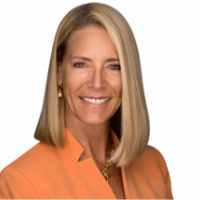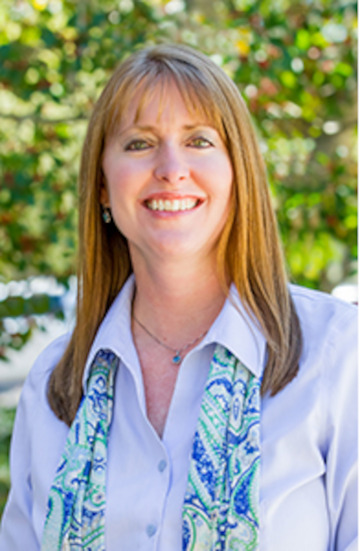Kim Reed is one of us. She’s been a voice in the wilderness, way out in Panama City, Florida, which is not (yet), shall we say, a “thriving metropolis of collaborative dispute resolution.” LOL. Kim was a lawyer who litigated but was convinced that there was a better way. Last month, she attended the Florida Academy of Collaborative Professionals’ strategic planning retreat, where her dwindling enthusiasm was re-energized.
Survey Suggestions
I did not expect Kim to show up for the retreat. After all, she had taken time to put together a lengthy narrative of suggestions in response to the survey I had requested FACP members complete. Yet there she was, committing a full day of her time sitting on Zoom and working through the issues with the other attendees planning FACP’s future.
Her thoughts may resonate with you. Do you have anything you can add to her outstanding suggestions? Do you disagree in any way? Are circumstances different where you are? Can you modify these ideas to work for you or your practice group?
How has FACP supported your practice group and members?

The networking has been incredibly helpful. I have been able to reach out to the different members with questions and have learned so much from them. Everyone has been and continues to be so welcoming. Being in the Panhandle, we are so far away from most every other group. I was really struggling, and once I joined FACP and began attending different events, it was like an entire world of information became available to me. This accelerated my transition to a non-litigation firm that is now so peaceful, and I can calmly manage my days without the constant emergencies that arise when you are litigating.
How can FACP provide more support to practice groups and their members? Your practice group?
Establish an actual marketing plan with a marketing professional, so that moving Collaborative forward is not solely based on the volunteer efforts (that are stretched really thin) of the members. I would like to see an actual plan that is disseminated to the members and receive updates regarding the steps that have taken place and their results, as the plan is being implemented. With most everything being tackled on a voluntary basis, things understandably move slower.
What else can FACP do to promote the collaborative process across the state?
There needs to be an organized effort to incorporate teaching the Collaborative process to law students in family law programs around the state. This way, we are not always having to swim upstream trying to teach and convince the other professionals around us that the Collaborative process is an amazing option for our clients. I spoke with someone today who practices Collaboratively in another state about this idea, and she advised that they are working on doing a similar thing in her state. This is outside of my wheelhouse, and so I do not know where to start with getting law school administrators to implement such a change. However, I would hope that maybe one or more of our members has knowledge about how programs like this get started in a law school and could provide guidance on the steps needed to make this a success.
Any other recommendations?

Set up some sort of statewide presentation for all the groups to use to then speak about Collaboration to other legal studies classes such as in the high schools and community colleges. Each presenter wouldn’t be restricted as to what to say, but a powerpoint could be put together that everyone could use, then it would be easier for everyone to just run with it. All of us are pulled in so many different directions every day, that it is difficult to make time to sit down and put together a presentation, and so for many people it never happens. Therefore, having one ready to go would hopefully make it more plug and play for all the groups.
Additionally, because these are classes of young students who are interested in the legal system, we would be more likely to command their attention and they would get something out of it that they can also share with others. Also, with this demographic, many of them or their friends may soon be going through either a divorce or a paternity action, or maybe their parents will be going through a divorce, and they can share this information with them.
Chatting After
When the retreat was over, I seized the opportunity to e-chat with Kim again. She was happy to share how much she had enjoyed the retreat and the ideas she had garnered to improve both her practice and her practice group while there:
I have learned so very much since FACP’s mentorship program sent Jerry Poliacoff to work with our practice group several years ago. At that time, I was so frustrated with litigation, that I was ready to retire myself.
I wish I also, like you, could say that my entire practice is collaborative; however, I have not been able to make that work just yet. Despite repeated lunches and other communications about it, many of the older attorneys in my small community are completely resistant to trying it. There are a few attorneys who are on board, and I have enjoyed working on about 10 collaborative matters with them.
Long Shot? Agreeing Not to Litigate
I only have two remaining litigation cases now, and the rest are settlement driven. Part of my retainer agreement with my clients includes their understanding and agreeing that I will not litigate.
At first, I thought it was a long shot even discussing that limitation with a client during a consultation; however, I was pleasantly surprised when client after client agreed that they wanted to stay out of court and avoid litigation.
Using Neutrals in Every Case
I now use an accountant in almost every case so that I can gather and assess all the financial information quickly and efficiently, and then deliver a settlement offer to the other side as soon as possible. This usually gets the ball rolling, and before long there is a settlement agreement.
Added Profit
I have also learned that a non-litigation practice requires very little staff. This surprisingly added to the profitability of having this type of practice. With your successful non-litigation practice, I am sure you already know all of this, but it has been very enlightening to me. I sure wish I had known about this as a much younger attorney.
I hope sharing Kim’s thoughts with you was insightful and productive. Please share your own ideas with us in the same way. Reach out to me at Joryn@OpenPalmLaw.com. The more we share our trials and our successes, the closer we come to making the collaborative approach the preferred practice in the State of Florida. And we are the state that is leading the way in these United States!

Joryn Jenkins, a trial attorney of 43 years, handled her first collaborative divorce over 20 years ago. Concentrating at Tampa, Florida’s Open Palm Law on courtless family law, her mission is “to change the way the world gets divorced” by informing couples of the divorce alternatives best suited to their families and helping them make good choices.
Joryn is a former Editor of The Family Law Commentator of The Florida Bar, former Editor-in-Chief of The Federal Lawyer and The Bencher magazines, and a former Stetson University law professor. She has published seven books on collaborative practice, two as editor and five as author, including her best-selling War or Peace (Avoid the Destruction of Divorce Court) and Changing the Way the World Gets Divorced (Marketing Your Collaborative Practice). Her other publications include poetry and a memorabilia cookbook for her stepdaughter.
Joryn serves as a Vice President of the Florida Academy of Collaborative Professionals (FACP), director of the Global Collaborative Law Council, and member of the Next Generation Divorce practice group.

Kim Reed is a collaborative family law attorney with Reed Law in Panama City, Florida. She has been practicing law for more than 20 years. She serves on the Florida Academy of Collaborative Professionals (FACP) board, and is President of her local practice group, Collaborative Divorce Professionals, Inc.






